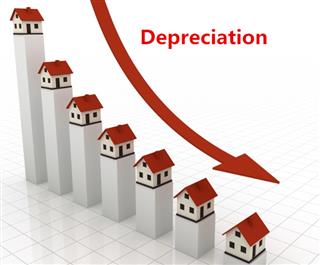Timeshares have been around for several decades and have become a controversial vacation ownership option for many people. One question that many potential buyers ask is whether timeshares go up in value over time. In this article, we’ll explore the factors that can influence the value of a timeshare and whether timeshares can be a good investment.
What is a Timeshare?
Before we can discuss whether timeshares go up in value, it’s essential to understand what a timeshare is. A timeshare is a vacation ownership program that allows individuals to purchase a share of a vacation property. This can be a unit in a resort, a cabin in the mountains, or a beachfront condo. The share typically entitles the owner to use the property for a certain number of weeks each year.
There are several types of timeshares, including fixed-week timeshares, floating-week timeshares, and points-based timeshares. Fixed-week timeshares allow owners to use the property during the same week each year, while floating-week timeshares offer more flexibility in terms of when the property can be used. Points-based timeshares allow owners to use their points to book stays at different properties within a network.
Factors That Can Influence the Value of a Timeshare
Several factors can influence the value of a timeshare, including:
- Location: The location of the timeshare can have a significant impact on its value. Properties in popular vacation destinations or those with desirable amenities such as beach access or mountain views may be more valuable than those in less popular locations.
- Demand: The demand for timeshares can also affect their value. Properties that are in high demand may command a higher price than those that are less popular.
- Age and Condition: The age and condition of the property can also influence its value. Older properties may have lower values than newer ones, and those in poor condition may be worth less than those that are well-maintained.
- Maintenance Fees: Maintenance fees are another factor that can impact the value of a timeshare. Properties with high maintenance fees may be less attractive to buyers than those with lower fees.
- Resort Amenities: The amenities available at the resort can also affect the value of a timeshare. Properties with pools, spas, restaurants, and other desirable amenities may be more valuable than those without them.
Do Timeshares Go Up in Value?
The answer to whether timeshares go up in value is not straightforward. While some timeshares may appreciate in value over time, others may not. Several factors can influence whether a timeshare goes up or down in value.
Appreciation in Value
Some timeshares may appreciate in value over time, especially if they are located in popular vacation destinations or have desirable amenities. In some cases, the value of a timeshare may increase due to improvements made to the property or resort. However, appreciation in value is not guaranteed and is not common in the timeshare industry.
Depreciation in Value
More often than not, timeshares tend to depreciate in value over time. This is due to several factors, including:
- Oversupply: There are many timeshare properties available on the market, and this oversupply can lead to lower prices and less demand.
- Maintenance Fees: Maintenance fees can increase over time, and this can impact the value of a timeshare. If fees become too high, it may be more difficult to sell the property.
- Resale Market: The resale market for timeshares can be challenging, and this can affect their value. It can be difficult to find buyers for timeshares, and this can lead to lower prices.
- Limited Use: Owners of timeshares typically have limited use of the property each year, and this can also impact their value. If the owner is unable to use the property each year, they may be more likely to sell it, leading to a surplus of timeshares on the market.
Should You Invest in a Timeshare?
Whether or not to invest in a timeshare depends on your individual circumstances and preferences. While some people have had positive experiences with timeshares, others have not.
If you’re considering investing in a timeshare, there are several things to keep in mind. First, it’s important to research the property and the resort carefully. Look for reviews from other owners, and visit the property before making a purchase.
Second, consider the costs associated with owning a timeshare, including the purchase price, maintenance fees, and any additional expenses such as exchange fees or travel costs. Make sure you can afford these costs before investing in a timeshare.
Finally, consider your vacation habits and preferences. If you enjoy visiting the same location each year and don’t mind being tied to a specific property, a timeshare may be a good option. However, if you prefer to explore new destinations each year or have a flexible vacation schedule, a timeshare may not be the best choice.
Conclusion
In conclusion, timeshares can be a good investment for some people, but not for everyone. The value of a timeshare can be influenced by several factors, including location, demand, age and condition, maintenance fees, and resort amenities.
While some timeshares may appreciate in value over time, it’s more common for them to depreciate in value due to oversupply, maintenance fees, the resale market, and limited use. If you’re considering investing in a timeshare, it’s important to research the property and resort carefully, consider the costs associated with ownership, and think about your vacation habits and preferences before making a decision.




